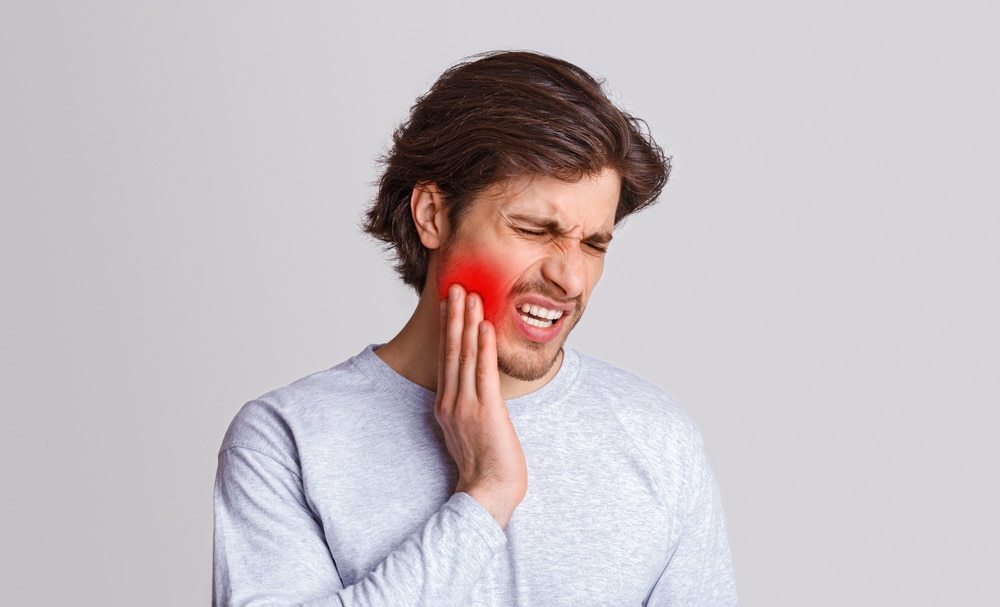A dental emergency is any oral health condition that requires immediate attention from a dental professional. This can include severe toothache, sudden tooth loss, gum injuries, or a broken jaw. Dental emergencies are not just about pain or discomfort. They can also have serious implications for your overall oral health.
Understanding dental emergencies also implies recognizing the urgency of the situation. Some conditions may allow you to wait for a couple of days before you visit the dentist, but others can require immediate attention. The key here is to understand the severity of your symptoms and act accordingly.
Common Types of Dental Emergencies
There are several types of dental emergencies, each with its unique set of symptoms. The most common dental emergencies include toothaches, knocked-out teeth, chipped or broken teeth, and abscesses.
Toothaches can range from mild discomfort to severe pain. A severe toothache that persists for more than a day or two can indicate a serious problem such as an abscess or an infection, and it is essential to seek immediate dental care. A knocked-out tooth is another common dental emergency. This can occur due to accidents or injuries and requires immediate attention to increase the chances of saving the tooth.
Chipped or broken teeth can also constitute dental emergencies, especially if they cause severe discomfort or are the result of a traumatic injury. Abscesses, on the other hand, are infections that occur around the root of a tooth or in the space between the teeth and gums. They can cause severe pain and are considered dental emergencies due to the risk of the infection spreading.
Tips to Respond to Dental Emergencies
Knowing how to respond to dental emergencies can make a significant difference in outcomes. In the case of a severe toothache, rinsing your mouth with warm water and using dental floss to remove any lodged food particles can help alleviate the pain temporarily. But remember, this is a temporary solution and visiting your dentist should be your priority.
If you’ve knocked out a tooth, try to keep it moist at all times. You can try placing the tooth back in the socket without touching the root or place it in milk. Again, it is crucial to seek immediate dental attention. For chipped or broken teeth, rinsing the mouth with warm water and applying a cold compress can help. For abscesses, rinsing the mouth with a mild salt water solution several times a day can help draw the pus to the surface and relieve pain.
How to Prevent Dental Emergencies
Preventing dental emergencies is not always possible, but certain measures can significantly reduce the risk. Maintaining good oral hygiene is the first step in preventing dental emergencies. This includes brushing twice a day, flossing daily, and using an antibacterial mouthwash.
Also, regular dental check-ups can help detect potential problems early before they turn into emergencies. Consuming a healthy diet that is low in sugar can also help maintain good oral health. Using mouthguards during sports and avoiding chewing hard foods or objects can prevent injuries and damage to your teeth.
Role of Your Local Dentist in Dental Emergencies
Your local dentist plays a crucial role in managing dental emergencies. They not only provide the necessary treatment but also guide you through the whole process. In case of an emergency, your dentist can provide immediate pain relief and conduct procedures like fillings, root canals, or extractions as needed.
Your local dentist can also provide valuable advice on managing dental emergencies. They can guide you on what steps to take during an emergency and how to care for your teeth afterwards. Having a trusted local dentist is essential in effectively dealing with dental emergencies.
Importance of Regular Dental Check-ups in Preventing Emergencies
Regular dental check-ups are vital in preventing dental emergencies. These check-ups allow dentists to detect early signs of oral health problems like cavities, gum disease, or oral cancer. Early detection means these conditions can be treated before they develop into more serious problems or emergencies.
Regular exams also provide an opportunity for dentists to thoroughly clean your teeth and remove any plaque or tartar buildup. This not only helps maintain good oral health but also prevents conditions that could lead to emergencies.
Maintain Your Oral Health Today
Dental emergencies can be daunting, but with a little knowledge and preparation, they can be managed effectively. Understanding what constitutes a dental emergency, knowing how to respond, and taking steps to prevent such situations are crucial. Above all, remember that your local dentist is your best ally in managing dental emergencies and maintaining overall oral health. Regular check-ups and a good oral hygiene routine can go a long way in preventing dental emergencies. So don’t neglect your oral health, and remember to keep your local dentist’s number handy for any dental emergencies.
For more tips on how to respond to dental emergencies, visit Progressive Dental & Associates at our Matteson, Illinois office. Call 708-980-0110 to schedule an appointment today.



